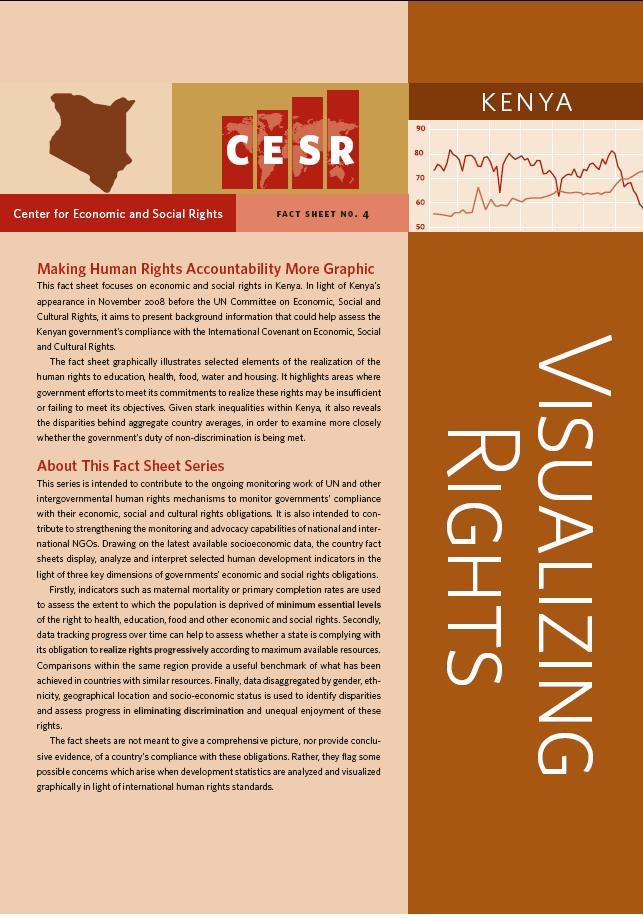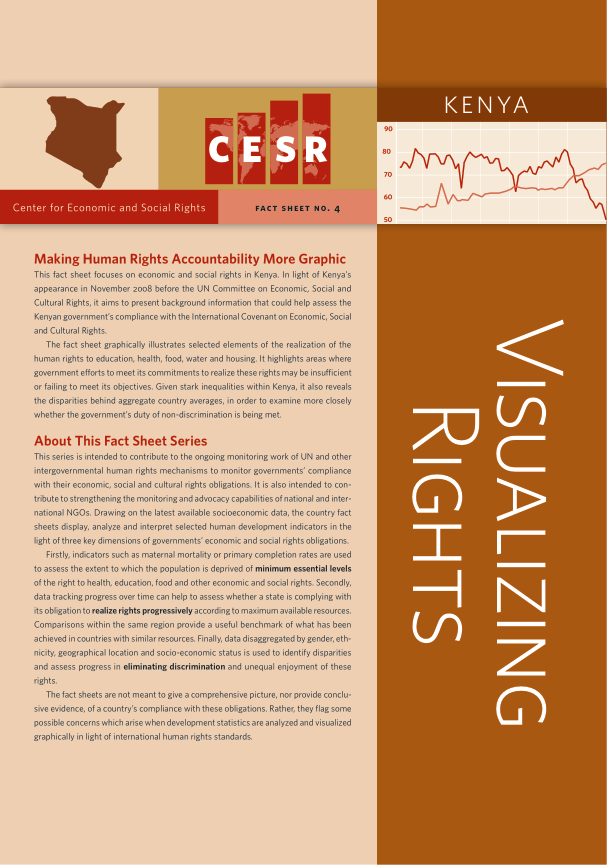 In comparison with other sub-Saharan African countries, Kenya appears to be making sufficient progress in realizing economic and social rights. But sharp disparities by province suggest that the government's duty of non-discrimination is not being met.
In comparison with other sub-Saharan African countries, Kenya appears to be making sufficient progress in realizing economic and social rights. But sharp disparities by province suggest that the government's duty of non-discrimination is not being met.
CESR's factsheet on Kenya provides a graphic overview of selected elements of the human rights to education, health, food, water and housing. It seeks to highlight areas where government efforts to realize these rights may be inadequate. It was prepared in light of Kenya's appearance before the UN Committee on Economic, Social and Cultural Rights (CESCR) in November 2008.
The factsheet is part of CESR's Visualizing Rights series. Each factsheet focuses on a country and its economic, social and cultural rights obligations. This focus helps enable intergovernmental human rights mechanisms, such as the UN, and national and international NGOs, monitor governments' compliance with their economic, social and cultural rights obligations.
The latest available socioeconomic data is used, taken either from international sources such as the World Bank or the UNDP, or national sources, such as national statistics bureaus. This data is displayed using graphs and charts, and then analyzed and interpreted. This is meant to shed light on the condition of governments' economic and social rights obligations.
